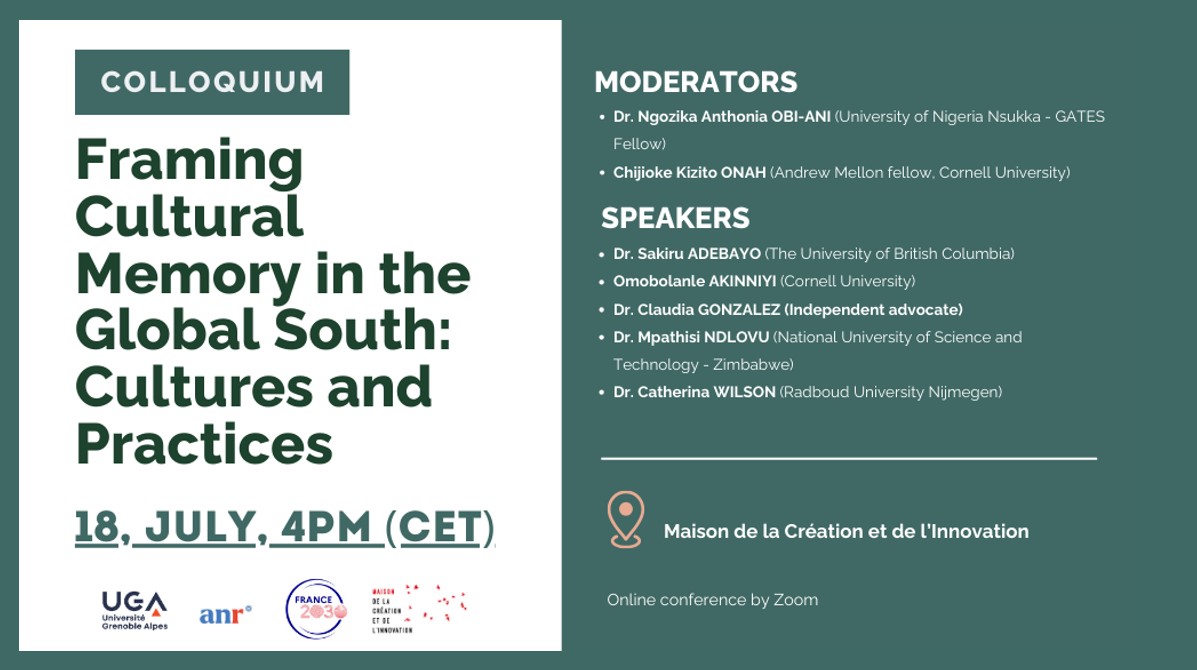- Share
- Share on Facebook
- Share on X
- Share on LinkedIn
Colloque, GATES / International
On 18 July 2024

Why should we remember painful pasts? How do painful and even traumatic memories travel over space and time? What does "post-conflict" mean, and how can the memories of survivors be addressed to achieve reconciliation and healing?
... What is the contemporary function of remembering painful pasts, and what lessons can people experiencing war learn today? How can we teach about historical trauma, especially to the post-war generation? What is the political context that prevents victims from speaking freely about their war experiences? How do oral historians and researchers contribute to the healing process through their meticulous documentation of past grievances and traumatic experiences?
Memory studies have gained increasing significance over the years. Scholars from various regions, including Europe, America, Latin America, Asia, and more recently, Africa, are engaging in the crucial task of confronting the silencing of historical experiences and bringing attention to traumas that have been left unspoken. Their work is of utmost importance to post-conflict societies, highlighting the power of their contributions to peace and conflict resolution.
This colloquium will examine the concept of Indigenous memory-making processes in the Global South to counter officially induced unspeakable memory. Studying non-western societies will offer us specific insights into other forms of memory-making that may not be currently legible in the discourse on the current Euro-American-dominated memory studies frameworks. This one-day colloquium will bring scholars and researchers from diverse backgrounds to challenge them to imagine indigenous forms of memory-making that might enrich our understanding of contemporary practices of memory in non-Western societies. We will also delve into issues and perspectives on how the above questions play out in the scholars’ various research contexts. It's a unique opportunity to share insights, engage in fruitful discussions, and contribute to the collective understanding of memory-making in post-conflict societies.
Speakers
- Dr. Sakiru ADEBAYO Sakiru, Assistant Professor, English and Cultural Studies, the University of British Columbia, Canada.
- Dr. Catherina WILSON, Assistant Professor in Social Geography, Radboud University Nijmegen, The Netherlands.
- Dr. Mpathisi NDLOVU, Associate professor of Journalism and Media Studies at the National University of Science and Technology (Zimbabwe).
- Dr. Claudia GONZALEZ, Independent advocate, researcher and conflict transformation practitioner. Political Scientist, Specialized in Theories and Experiences in Armed Conflict Resolution, Ethnic Communities Land Restitution and Historical Memory.
- Omobolanle AKINNIYI, Department of History, Cornell University USA.
Moderators - Dr. Ngozika Anthonia OBI-ANI, GATES Fellow, Université Grenoble Alpes and University of Nigeria, Nsukka
- Chijioke Kizito Onah, Andrew Mellon fellow, Cornell University USA
> Online colloquium by Zoom (english):
https://univ-grenoble-alpes-fr.zoom.us/j/93665211967?pwd=ga98390oW2AvR8dMG55r9wQbl3cWGk.1
Supported by the GATES project (Grenoble ATtractiveness and ExcellenceS), funded by the French government's Programme d'Investissement Avenir and implemented by ANR France 2030
Date
4 pm
Localisation
Maison de la Création et de l'Innovation
Online colloquium by Zoom (english)
- Share
- Share on Facebook
- Share on X
- Share on LinkedIn
